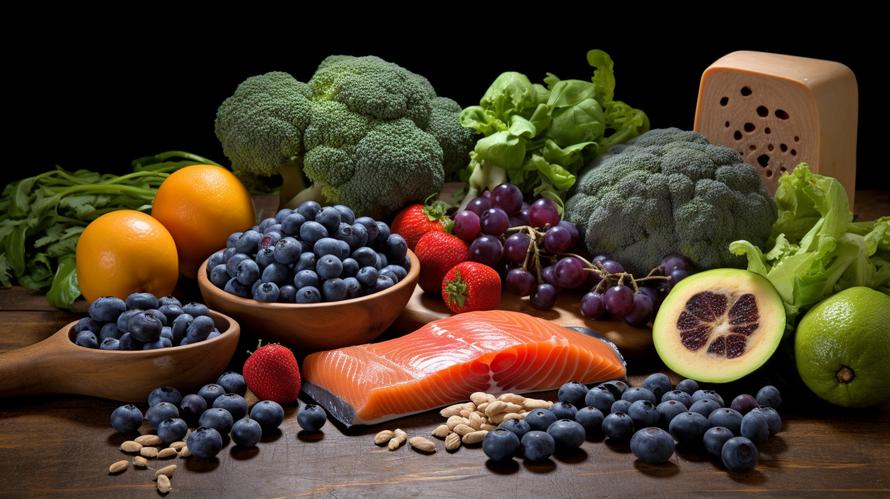Imagine this: an ancient grain, packed with unparalleled nutritional density, once fueled the mighty Inca civilization. Today, it’s not wielding swords in battle but fighting an insidious adversary within our very bodies—colon cancer. This hero is none other than quinoa—a fascinating pseudocereale whose anti-cancer properties are now under the investigative spotlight of modern science.
Quinoa is just the tip of the iceberg in a diverse arsenal of foods that research suggests may offer protection against colon cancer, the third most diagnosed cancer worldwide. Thanks to its rich content of fiber, antioxidants, and a bevy of polyphenols, quinoa joins the vanguard of foods that could keep this dreaded disease at bay.
But quinoa isn’t the only protector at the dining table. Other members of this “justice league” against colon cancer include cruciferous vegetables like broccoli, kale, and Brussels sprouts. These verdant victors offer compounds like sulforaphane that not only pack a punch against cancer cells but also boost DNA repair. It’s like having your own cellular repair team working ’round the clock to fix potential cancer-causing damage.
Let’s take Brussels sprouts as a case study. Often the unsung heroes, these tiny cabbages contain glucosinolates, which during digestion break down into biologically active compounds that inhibit the growth of cancer cells in colon tissues. Illustrating their might, a study performed by the Linus Pauling Institute found that these compounds could disarm carcinogens before they even have a chance to alter colon cell DNA.
But it’s not all about sulphur-rich veggies. Enter fatty fish, like salmon and mackerel, rich in omega-3 fatty acids, celebrated for their inflammation-reducing prowess. Chronic inflammation is a known player in the development of cancer, and omega-3s step in like anti-inflammatory superheroes. A robust analysis by the American Journal of Epidemiology suggested that fish consumption is inversely related to the risk of colorectal cancer—adding another weapon to our dietary armory.
When you’re munching on almonds or spreading almond butter on your toast, you’re doing more than treating your taste buds; you’re enlisting vitamin E in the battle. This potent antioxidant’s mission? To neutralize free radicals that can damage colon cells and pave the way for tumor formation. Almonds lead the pack of nuts when it comes to vitamin E content, representing a tasty tactical maneuver in cancer risk reduction.
If nuts aren’t your thing, perhaps a bowl of bright red raspberries will delight you. These berries are serious business in the colon health department, boasting high levels of fiber and ellagic acid—an anti-cancer compound that studies suggest can slow the growth of some cancer cells. Researchers also believe that it helps the liver to break down and remove cancer-causing substances from the blood.
Beans, with their complex carbohydrate structure, do not just fuel the body; they are a dietary dynamo in colon care. High in resistant starch, they have a special talent for satisfying hunger while their fibers ferment in the large intestine, creating short-chain fatty acids that nourish colon cells and might help prevent cancerous growths. A notable study by the American Journal of Clinical Nutrition highlighted that a high intake of beans significantly reduced the risk of colorectal adenomas—a precursor to cancer.
Color your plate with a spectrum of fruits and vegetables, and each hue brings its own distinctive cancer-fighting profile. Carrots and sweet potatoes are not merely vibrant side dishes—they wield beta-carotene, an antioxidant that the body converts to vitamin A, propelling it to repair and maintain the tissues that line the colon. And let’s not forget lycopene in tomatoes, which basks in the limelight for its potential to inhibit the growth of cancer cells.
Turning to whole grains, these are the stalwarts of colon health. Unlike their refined counterparts, whole grains like oats, barley, and brown rice contain the entire grain kernel, offering layers of nutrition. A study in the Journal of Nutrition concluded that an abundant whole grain intake correlates with a lower risk of colorectal cancer, thanks to its fiber content aiding regular bowel movements and its array of antioxidants and phytochemicals standing guard against cellular damage.
Yet, the journey to a cancer-resistant colon isn’t solely about what you eat—it’s also about how you pair it. A diet rich in variety ensures that you’re not only enjoying taste and texture but also fortifying your body with a synergistic shield of nutrients. Pair your whole grains with legumes, or combine your fatty fish with a kale salad; these combinations can compound the protective effects of each food’s cancer-fighting components.
Lastly, it’s about integrating these foods into a lifestyle that thrives on balance. A diverse diet, combined with regular exercise and a watchful eye on moderation, especially in red meat and alcohol consumption, forms a triad of defense against colon cancer. It’s also worth noting that screening and early detection play a paramount role in averting cancer’s advance, as does staying abreast of the latest research that continues to unravel the complex tapestry of this disease.
In the epic struggle against colon cancer, the food choices we make are more than just a daily routine; they are powerful decisions that potentially shape our very destiny. Ensuring that each plate is a colorful mosaic of cancer-fighting foods can make eating a proactive and purposeful act—a true celebration of life and longevity.
Remember, your colon does more than just process the food you eat—it’s a living battlefield where the foods you choose can become the champions of your health. So, next time you fork through that salad or enjoy a piece of baked salmon, you’re not just indulging in a meal. You’re enlisting a legion of nutritional defenders, each with their role to play in the grand campaign for better colon health and reduced risk of cancer.
By making informed, delicious, and diverse food choices, you’re not just being a conscientious eater—you’re a tactical mastermind in the art of dietary defense, crafting a fortress against colon cancer, one bite at a time.



